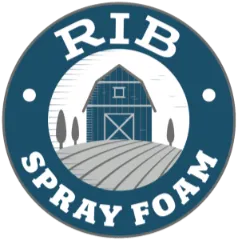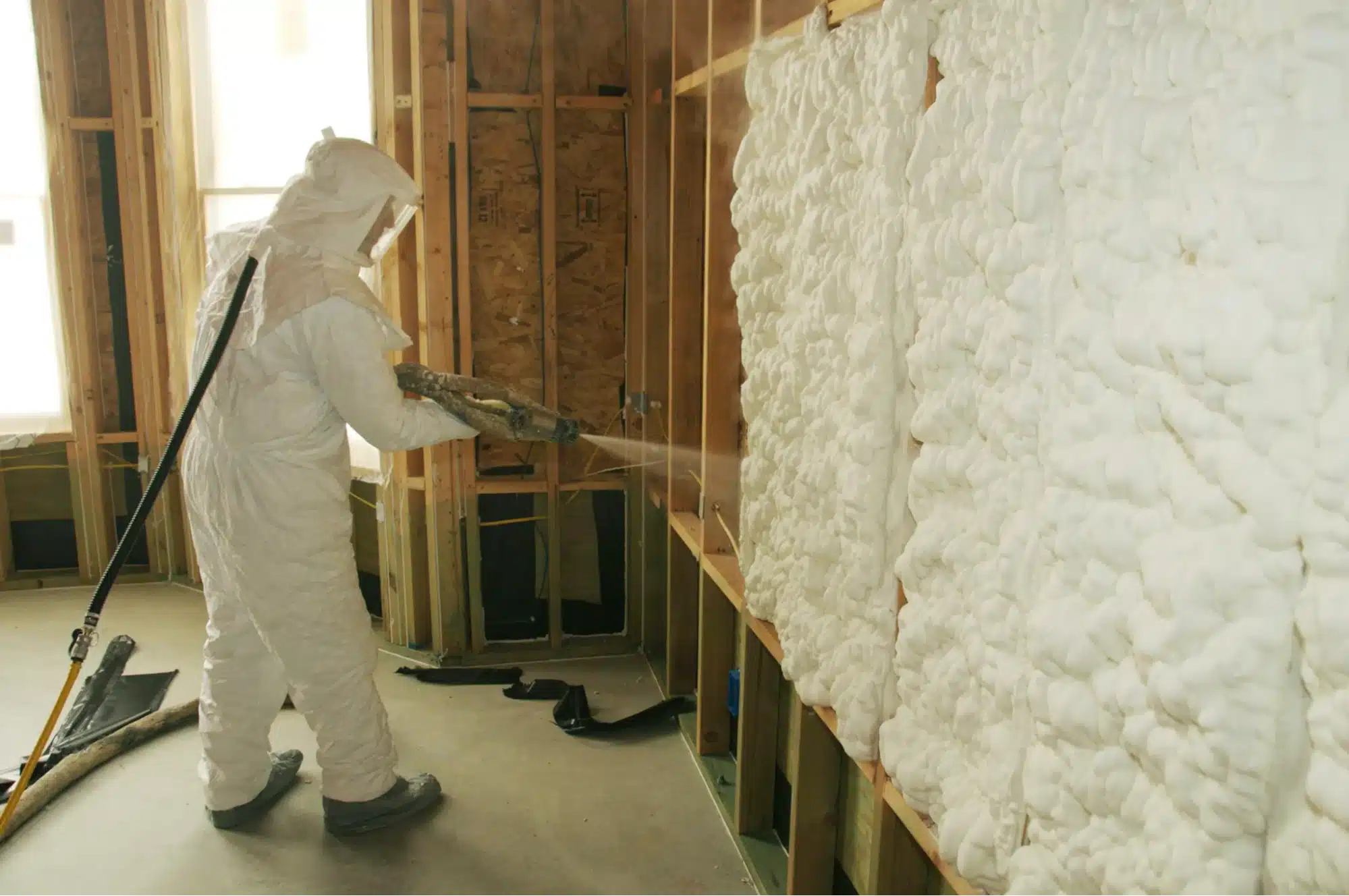The Role of Insulation in Home Energy Efficiency
Home insulation directly impacts energy efficiency, and for residents of Evans, CO, selecting the right insulation can make a significant difference in utility costs. Spray foam insulation offers a modern solution that not only enhances temperature control but also provides long-term savings by reducing energy loss. Understanding how spray foam works, its benefits, and why it outperforms traditional insulation can help homeowners make informed decisions.
How Spray Foam Insulation Works
Spray foam insulation is made from polyurethane, which expands upon application to form a solid, airtight barrier. This material fills gaps, cracks, and hard-to-reach spaces, eliminating common weak points in traditional insulation methods. The two primary types of spray foam insulation are:
- Open-cell foam: A lighter, more flexible option that provides strong air sealing and some soundproofing benefits.
- Closed-cell foam: A denser, more rigid material that offers superior moisture resistance and higher R-value (thermal resistance).
By sealing leaks and reducing heat transfer, spray foam creates a more efficient indoor environment, reducing the workload on heating and cooling systems.
Why Energy Bills Are High in Evans, CO Homes
Several factors contribute to high energy costs in Evans, CO, including:
- Temperature Fluctuations: Winters can be cold, and summers bring heat that requires consistent air conditioning.
- Air Leaks and Drafts: Older homes often have gaps around windows, doors, and attics, allowing conditioned air to escape.
- Inefficient Insulation: Traditional insulation materials like fiberglass or cellulose degrade over time, losing effectiveness.
Spray foam insulation addresses these challenges by sealing gaps and enhancing overall energy retention.
Benefits of Spray Foam Insulation for Homeowners
Lower Heating and Cooling Costs
Spray foam insulation reduces heat transfer, meaning homes stay warmer in winter and cooler in summer. This efficiency lowers energy consumption and leads to lower utility bills.
Improved Indoor Air Quality
By sealing gaps, spray foam prevents outdoor pollutants, allergens, and moisture from entering the home. This results in cleaner, healthier indoor air.
Long-Lasting Performance
Unlike fiberglass and cellulose, spray foam does not sag or settle over time. It retains its insulating properties for decades, making it a one-time investment with long-term savings.
Added Structural Strength
Closed-cell spray foam strengthens walls and roofs by adding rigidity, making homes more resistant to external forces such as wind and heavy snow.
Moisture and Mold Prevention
Moisture infiltration leads to mold growth, which can be harmful to health and costly to remediate. Spray foam’s airtight seal prevents moisture buildup, protecting both the home and its occupants.
Best Areas to Apply Spray Foam Insulation
Attics and Roof Decks
Attics are a major source of heat loss. Applying spray foam insulation to the attic ensures a thermal barrier that keeps temperatures stable year-round.
Walls and Basements
Insulating exterior walls and basements prevents drafts, reducing the need for excessive heating and cooling. It also enhances soundproofing.
Crawl Spaces
Uninsulated crawl spaces can be a source of cold air infiltration. Spray foam insulation effectively seals these areas, maintaining a consistent indoor climate.
Professional Installation for Maximum Efficiency
To achieve the best results, professional installation is recommended. Expert installers ensure the correct application thickness and coverage, optimizing energy efficiency. If you’re considering upgrading your home insulation, RIB Spray Foam offers reliable services in Evans, CO. Contact us at (970) 518-2883 or email [email protected] for a consultation.
Cost vs. Savings: Is Spray Foam Worth It?
While spray foam insulation has a higher upfront cost than traditional options, the long-term savings make it a worthwhile investment. Homeowners typically see a return on investment through:
- Lower monthly energy bills
- Reduced HVAC maintenance costs
- Increased home value due to energy efficiency improvements
Get Started with Energy Savings Today
If you’re ready to lower your energy bills and improve home comfort, consider spray foam insulation. Contact RIB Spray Foam at (970) 518-2883 or [email protected] to schedule a consultation and start saving on energy costs today.
Frequently Asked Questions
2. Is spray foam insulation safe?
Once fully cured, spray foam insulation is non-toxic and safe. During installation, proper ventilation is required to prevent exposure to fumes.
3. How long does spray foam insulation last?
Spray foam insulation can last 30 years or more without losing its effectiveness, making it a long-term solution.
4. Does spray foam insulation help with soundproofing?
Yes, open-cell spray foam provides excellent soundproofing by reducing airborne noise transfer between rooms.
5. Can I install spray foam insulation myself?
While DIY kits are available, professional installation ensures proper coverage, adherence to safety guidelines, and optimal energy savings.
6. Will spray foam insulation increase my home’s value?
Yes, energy-efficient upgrades like spray foam insulation can boost home value by reducing energy costs and improving overall comfort.
7. Can spray foam insulation be applied over existing insulation?
It depends on the type of existing insulation. In many cases, old insulation needs to be removed before applying spray foam for maximum effectiveness.
8. Does spray foam insulation shrink over time?
No, properly installed spray foam retains its shape and insulating properties without shrinking.
9. How does spray foam compare to fiberglass insulation?
Spray foam provides superior air sealing, moisture resistance, and durability compared to fiberglass, which can sag and allow air leakage over time.
10. What climate is best suited for spray foam insulation?
Spray foam insulation performs well in all climates, including the temperature extremes of Evans, CO, making it an ideal solution for year-round energy savings.



